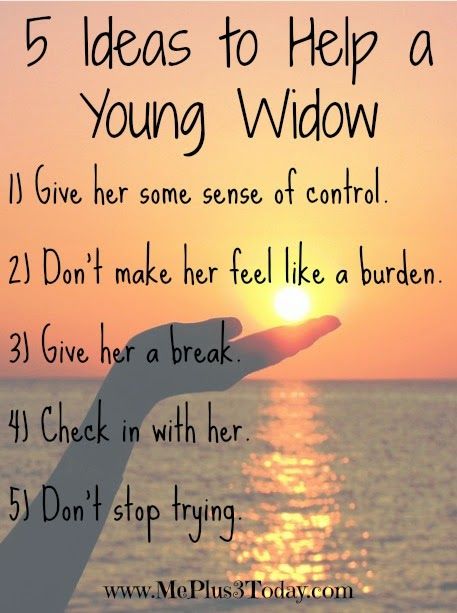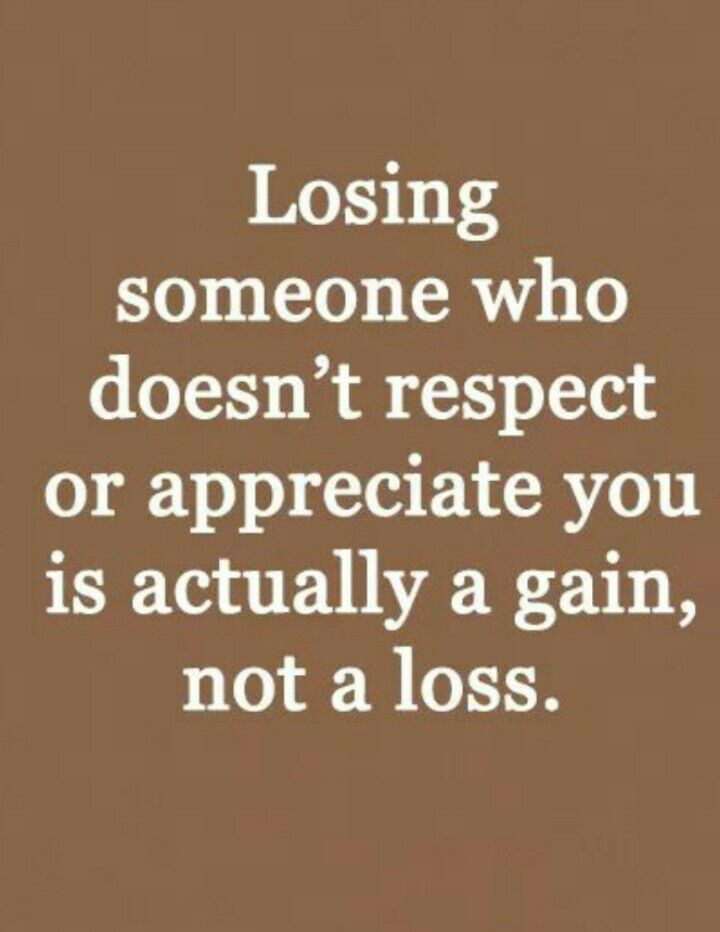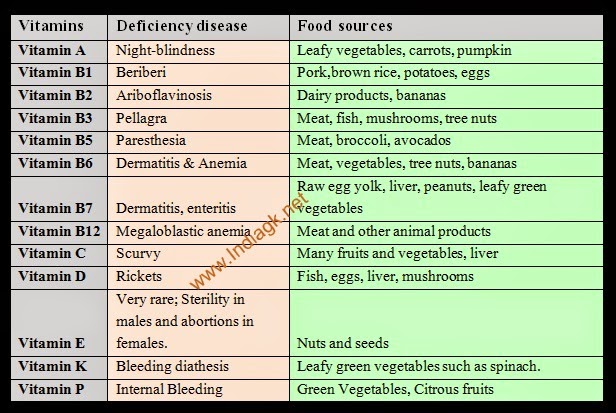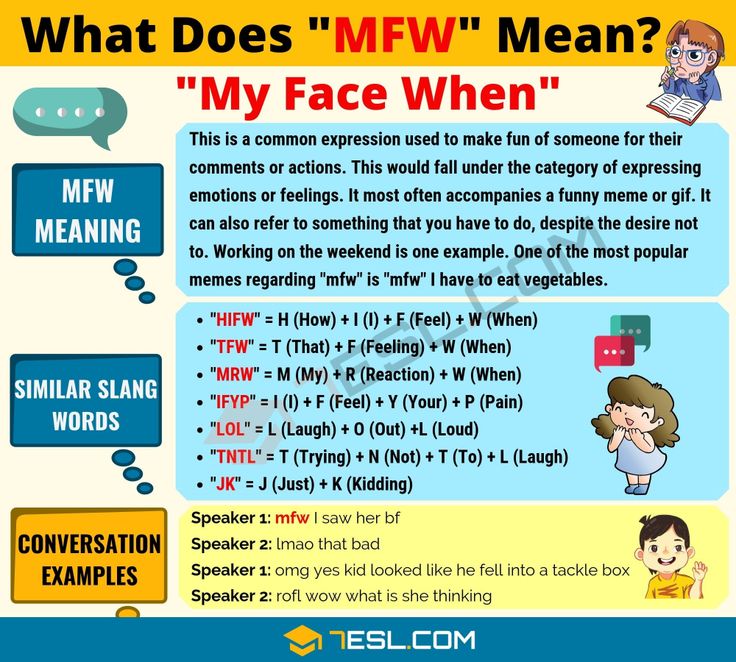Your relationship should be a safe haven
Understanding Relationship Abuse - Safe Haven Ministries
What is Domestic Abuse?
Domestic abuse is a pattern of controlling behaviors that may include physical assaults, sexual assaults, emotional abuse, isolation, threats, stalking, manipulation, and/or intimidation. These behaviors are used by one person in an intimate relationship to control the other. The partners may be married, engaged, separated, or dating; heterosexual or gay; living together or not.
Abuse can happen to anyone regardless of someone’s religion (or lack of), gender identity or expression, age, race or nationality, cultural background, class, ability, and/or education.
1 in 3
1 in 4
in the United States have experienced rape, physical violence, and/or stalking by an intimate partner in their lifetime (2010 National Intimate Partner and Sexual Violence Survey, Centers for Disease Control and Prevention).
1 in 4
1 in 7
in the U. S. have experienced severe physical violence by an intimate partner at some point in their lifetime (2010 National Intimate Partner and Sexual Violence Survey, Centers for Disease Control and Prevention).
Examples of Abusive Behavior
Emotional/Psychological Abuse
- Ridicules opinions/beliefs
- Belittles or puts down
- Continually criticizes or calls names
- Humiliates in public or private
- Threatens harm or suicide if relationship ends
- Lies/contradicts, plays mind games
- Withholds access/information about family finances
- Destroys property or threatens to kill pets
Physical Abuse
- Pushes, kicks, bites
- Hits, slaps, punches
- Throws objects or destroys property
- Locks partner out of home
- Refuses to help when partner is ill or injured
- Uses weapons against partner
- Abandons partner in dangerous situations
- Threatens physical abuse
Sexual Abuse
- Forces unwanted sexual acts on partner
- Accuses partner of cheating
- Insists partner dress in a sexual manner
- Constantly criticizes partner sexually
- Endangers partner’s sexual health with unprotected sex
- Sabotaging forms of birth control
- Reproductive coercion, including forcing partner to have unwanted children
- Infecting partner with a sexually transmitted infection (STI)
Spiritual Abuse
- Quotes scripture to justify abusive, dominating, or other oppressive behaviors
- Forces partner to violate religious beliefs
- Prevents partner from attending church
Digital Abuse
- Constantly checking texts, emails, and/or social media accounts without permission
- Sending or distributing sexual photos of partner
- Using GPS or other electronic devices to track whereabouts
- Recording telephone conversations
Signs of Abuse
Victims of domestic violence are not likely to speak openly about their relationship, but may show subtle signs of having an abusive partner. Signs may include:
Signs may include:
- Unusually quiet or hesitant or unusually cheery behavior
- Withdraws from activities and/or distances themself
- Acts very guarded while talking on the telephone
- Asks permission from partner to do ordinary things
- Claims to be “accident-prone”
- Makes comments about partner’s “moodiness,” “short fuse,” or “temper”
- Glances quickly at partner before responding to a question or statement from others
- Tries to smooth things over and works harder than seems necessary to avoid upsetting partner
- Looks often at watch or cell phone when away from home
- Frequent vague physical symptoms and sicknesses
If you notice someone exhibiting these characteristics, don’t be afraid to privately ask if the person feels safe at home. If the person tells you they do not, encourage them to seek support from an organization such as Safe Haven. Our advocates are also available to speak with a supportive person in a victim/survivor’s life.
If the person tells you they do not, encourage them to seek support from an organization such as Safe Haven. Our advocates are also available to speak with a supportive person in a victim/survivor’s life.
Is Your Marriage a "Safe Haven"?
How emotionally connected are you and your spouse? Is your marriage one where you feel understood, and in which arguments can be resolved? Where you trust each other with your hearts? Or instead, do you find yourselves disconnected, with resentment accumulating from unresolved conflict? Do you feel alone, even though you've been married for years?
All couples marry with the hope of experiencing a sweet connection together. But most couples quickly discover that marriage is hard work, and that it is easy to get stuck arguing over differences—and even easier to let unresolved hurts accumulate. The buildup of resentment and resulting emotional disconnection can push a couple further and further apart.
A good and lasting marriage is one where each spouse perceives it to be a "safe haven. " That is, a place where they feel known, understood, supported, and unconditionally loved.
" That is, a place where they feel known, understood, supported, and unconditionally loved.
In all of the "Safe Haven Marriage Intensives" we have conducted, we discovered that most couples long to experience a 'safe haven'. A place of emotional closeness, enjoyment, comfort, and loving reassurance in a marriage.
Unfortunately, marriage doesn't always turn out to be such a close, connected relationship. It can at times become a battleground where arguments are fueled by hot emotions and negative ways of interacting.
Maybe today, after years of unresolved arguments, you're not feeling connected with your spouse. You love your wife, but just can't turn to her and trust her with your faults, never mind your feelings. And the more you try to get your wife to hear you, the more she defends herself. You end up keeping things to yourself and staying busy so to avoid yet another argument.
What are the key, life-giving ingredients of a "safe haven" marriage?
1. Trust — There are two kinds of trust that are of importance. One is reliability trust, where you have the assurance that your spouse will be dependable, on-time, honest, and truthful. The other trust is heart trust. This is where, at the end of the day, after all the arguing, you can trust that your spouse will be there for you and with you.
Trust — There are two kinds of trust that are of importance. One is reliability trust, where you have the assurance that your spouse will be dependable, on-time, honest, and truthful. The other trust is heart trust. This is where, at the end of the day, after all the arguing, you can trust that your spouse will be there for you and with you.
What does this look like?
Let your spouse know if you are going to be late. Be honest as to whether or not you will have time to run the errand you are promising to do. Be careful with your words, never calling your spouse names or using personal information to hurt your spouse during an argument. It might feel good to vent in the heat of the moment, but try to realize when your words are like arrows piercing your spouse's heart.
2. Emotional Availability — This is where you are attuned to each other's feelings and needs, and there for each other in meaningful ways. You turn your full attention to your spouse when he or she needs you.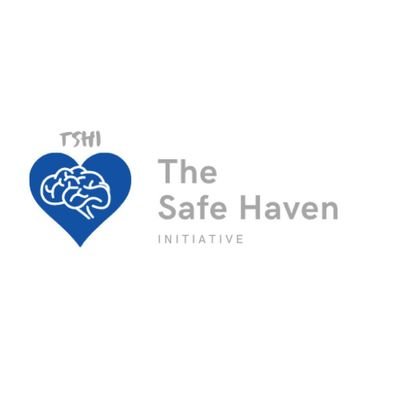 It is opening not only your ears and your mind, but also your heart to be there for your spouse. You share fully, but also listen closely to your spouse's views and feelings.
It is opening not only your ears and your mind, but also your heart to be there for your spouse. You share fully, but also listen closely to your spouse's views and feelings.
What does this look like?
When your spouse wants to share stories of the day, you turn and tune in with your eyes and face to what your spouse is saying. This up close and personal interaction is what will help you feel connected, cared for, and valued by your partner.
3. Mutual Respect — Respond to each other in a considerate manner. Because you love your spouse, you'll value his or her opinion. This is where you weigh your spouse's perspective with yours and respond with humility and kindness. You are approachable, desiring to understand and slow to react. Your spouse can trust that you will be emotionally safe and self-controlled.
I realize that these 3 keys are easier to say than do. This is especially true when you're caught up in the middle of an argument. Or when she rolls her eyes as you explain why you are 30 minutes late for date night. Or when he forgets to open your car door again. If you're on a short fuse, you'll likely feel hurt and angry, and all the other times your spouse has hurt or disappointed you will come to mind. And in an instant, you will go from feeling 'this is a nice evening' to 'this is another disappointing evening wasted.'
Or when she rolls her eyes as you explain why you are 30 minutes late for date night. Or when he forgets to open your car door again. If you're on a short fuse, you'll likely feel hurt and angry, and all the other times your spouse has hurt or disappointed you will come to mind. And in an instant, you will go from feeling 'this is a nice evening' to 'this is another disappointing evening wasted.'
At times like these, it will be difficult to stay attuned to your spouse, patiently understanding his or her perspective. But it is exactly in these moments that we need to pause, take a deep breath and ask ourselves, "Is the way I'm reacting fostering the kind of 'safe haven' marriage I want for us?"
The keys to a healthy and long-lasting marriage is emotional safety and the quality of the bond that connects you and your spouse. And realizing that to love well, one needs to be trustworthy, emotionally available, and respectful. Let that be a reminder going into every conversation and in the middle of every argument.
And if you feel disconnected and unable to make your way back home to a safe haven, we encourage you to reach out for professional help and counseling.
Parts of this article were excerpts from the book Safe Haven Marriage: Building a relationship you want to come home to by Dr. Sharon May and Dr. Archibald Hart.
How to build a healthy relationship - Knife
It would seem that the search for a soul mate is a rather simple undertaking: "A cheerful, romantic, fit man is looking for a woman with similar qualities for eternal love and friendship." However, in reality this is quite rare: having met this prince on a white horse, we wonder what meaning he puts into the words “tight”, “romantic” or even “funny”. Complicating the situation is the fact that other people's luggage is your own, I talked about this in the previous chapters.
But don't wallow in these contradictions. Compassionate self-awareness will help you discover that you are much more likely to meet a good match than you thought. I do not mean an objectively ideal companion, but a person who can accept you and love you for who you are. Just as importantly, compassionate self-awareness will help you find your way out of difficult situations. You will begin to clearly understand what you are looking for in a relationship and act accordingly.
I do not mean an objectively ideal companion, but a person who can accept you and love you for who you are. Just as importantly, compassionate self-awareness will help you find your way out of difficult situations. You will begin to clearly understand what you are looking for in a relationship and act accordingly.
Set a goal: healthy relationships
In relationships, as in other areas of life, in order to succeed, you must understand what you want. Of course, you can end up in a good relationship by chance, but even then it is worth knowing what your goal is. The goal allows you to choose the right direction and follow the right path.
In general, what forms a secure attachment in childhood creates a secure relationship in adulthood. So aim for relationships that meet the following characteristics.
Proximity. Children need parents physically and emotionally to make them feel safe, but in adult relationships patterns of emotional intimacy play a more significant role. Although relationships can be stressful, they are not doomed to fail. But partners must understand each other's needs and meet them. If one partner is emotionally closed off or hostile, the other is more likely to feel rejected, alone, and abandoned, and doubt their own personal worth.
Although relationships can be stressful, they are not doomed to fail. But partners must understand each other's needs and meet them. If one partner is emotionally closed off or hostile, the other is more likely to feel rejected, alone, and abandoned, and doubt their own personal worth.
Safe haven. Just as a child runs to his mother when he is frightened or upset, partners in healthy relationships turn to each other when they need approval or support. In life, there is always a place for at least slight pain and small obstacles, so it is important to have a partner who can console, provide help in difficult times and give you a break from hardships. People who know that they have a reliable shelter from the weather are less stressed. Unfortunately, if one of the partners is dismissive or critical, the other partner cannot turn to him for help - and if he does, he will feel rejected.
Strong base. In order to enjoy life and feel love in a relationship, both partners must be able to follow the desires of their hearts - or at least simply explore what these desires can be. Healthy relationships are those in which partners support each other in this endeavor.
Healthy relationships are those in which partners support each other in this endeavor.
As you reflect on these criteria for a healthy relationship, remember that both partners must make an effort. Both must be ready to accept and be accepted, which is the basis of intimacy; comfort and receive comfort, providing a safe haven in times of trouble; maintain and receive support so that relationships serve as a solid base while exploring the world. Many of us are more concerned that the partner could bring us these "gifts", however, it is equally important for the partner to receive all the same from us, because relationships live and develop if they adhere to the "take and give" scheme. It is also important that you can both give and receive.
This overview gives some insight into what to expect, but does not explain how to choose the right partner or how to move forward. I will talk more about this in the next section.
What qualities to look for in a partner
A good partner can help us get closer to the version of ourselves you want to be. Researchers Stephen Drigotas, Caryl Rusbult, Jennifer Wieselquist, and Sarah Witton (1999) deduced the basis of this process, calling it the Michelangelo phenomenon. Just as Michelangelo could see the beautiful forms of his sculptures in a stone block, so a loving partner is able to reveal the best or ideal self in you and reveal a wonderful beginning.
Researchers Stephen Drigotas, Caryl Rusbult, Jennifer Wieselquist, and Sarah Witton (1999) deduced the basis of this process, calling it the Michelangelo phenomenon. Just as Michelangelo could see the beautiful forms of his sculptures in a stone block, so a loving partner is able to reveal the best or ideal self in you and reveal a wonderful beginning.
In theory, a person who can do this has the following qualities. I will clarify that the one who suits you may not have all these traits. This is fine. The list below is a schematic route to think about (but think seriously about) when you are looking for a potential partner or evaluating the suitability of the person next to you right now. So, your partner.
Emotionally mature and has a secure type of attachment. Such people are in harmony with themselves and others, they are emotionally open, and they also want that they and their partner have different personal interests. In addition, they are able to openly, balanced and calmly reflect on themselves and their lives.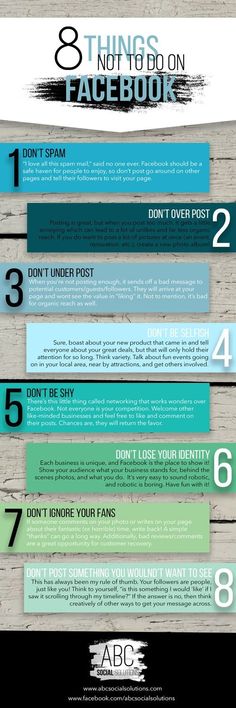 They admit their own limitations and mistakes, without changing their positive attitude towards themselves. Realizing that others are also imperfect, they are ready to forgive their partners.
They admit their own limitations and mistakes, without changing their positive attitude towards themselves. Realizing that others are also imperfect, they are ready to forgive their partners.
Able to communicate constructively. Such people are good at listening and sharing their own thoughts and feelings, which helps them build and maintain close relationships. They are able to effectively resolve conflicts. Such people are generally good at recognizing and coping with their emotions, which is a definite plus when trying to get closer to another person and work through the difficulties that inevitably arise in an emotionally close relationship.
Appreciates you. Just falling in love is not enough. Relationships are built together and can only be happy in the long run if the partner respects and appreciates you - and works to demonstrate this in one way or another. The partner must show interest in you in order to get to know you better. You will be at the pinnacle of happiness and reach your full potential if you are supported in exploring your personal interests.
Suitable for you. Spending time together that brings joy is very important. And this implies that you must have common interests. Which, in turn, means that you should enjoy spending time together, even if it's just for heartfelt conversations. In a long-term relationship, it is extremely important to share or at least respect each other's values. And the more these values affect everyday life, the more important it is that they match. For example, a crisis is inevitable if one partner wants children, while the other is categorically against it. And if one of the partners is accustomed to a nomadic lifestyle, then relations will develop better if the second one is satisfied with it.
Ready for a relationship. Your partner must be willing to invest in the relationship. This means that he is ready to devote his time and attention to them, no matter if you are together or at a distance. This applies to both sexual and emotional intimacy. And finally, a potentially good partner believes that you - as a couple - are responsible for each other's happiness.
Again, because this is very important, you don't have to look for Mr. or Miss Ideal, because such people do not exist. You don't even need to look for Mr. or Ms. Ideal-for-me, as this can result in an endless search of candidates, spurred on by the unquenchable hope that the best person is somewhere around the corner. You should look for Mr. or Miss Good-for-me. I'm not suggesting that you stay with someone you're unhappy with, I'm suggesting you make sure you get your priorities right. With a solid foundation, it will be easier for you to accept a slight sloppiness, or a lack of desire for a career, or some other "flaw" - and you may even begin to appreciate it. For example, more than modest career aspirations may indicate how valuable relationships and other intangible aspects of life are to your partner.
And one more warning: don't immediately reject a "nice-but-boring" applicant. As noted by Amir Levin and Rachel Heller (2010), sometimes people equate their relationship anxiety with being in love. If you are comfortable with an open person, your anxiety may not activate. So it's entirely possible that the "nice person" you've met is a great fit for you, despite the lack of instant rapture.
If you are comfortable with an open person, your anxiety may not activate. So it's entirely possible that the "nice person" you've met is a great fit for you, despite the lack of instant rapture.
Exercise. Introducing the Ideal Partner
Imagine that you are walking through a desert area and suddenly you see an old wedding ring half-trodden into the ground. When you pick it up and wipe off the dirt for a better view, a genie flies out of it. It has the special power to summon the partner of your dreams or turn your current imperfect partner into the perfect one. He only needs a list of what you want from a partner. Think carefully before answering: your future depends on it.
Write a list to help you complete the task. Include every quality that comes to your mind: character, relationships with others, attitude towards you, data about him as a parent (for example, desire to be one, number of children desired or beliefs about the role of each partner), work, physical characteristics, lifestyle, priorities and interests. Add here your idea of how you will spend time together.
Add here your idea of how you will spend time together.
The more details you provide, the better. Of course, there is no genie (sorry!), and it is unlikely that you will ever meet a person who will fit all the items on your list. But after this exercise, you will have a better chance of understanding whether a particular person is right for you.
Exercise. Introducing the Ideal Relationship
The "right" partner helps develop reliability in yourself and relationships, and improve communication skills. But even if you could order such a person, this would not be enough to ensure a happy future for your relationship. You must participate in their creation. So think about what qualities you have for building a healthy relationship and how you can change and become better by developing these qualities with the support of a good partner. At the same time, do not forget that relationships take time to develop - both because intimacy is formed gradually, and because you will not instantly recover from your anxieties. To make it easier for you to think about it, answer the following questions.
To make it easier for you to think about it, answer the following questions.
See also
Learning to Build Healthy Relationships: Lessons from Neuroscience
- How would a caring, considerate, faithful partner influence you?
- How do you think your feelings in this relationship would change compared to what you experienced in the past?
- What will be the first signals, both in communication and at the level of feelings, that this relationship is better than the previous ones?
- What signals, both large and small, will you notice afterwards?
- As your anxiety decreases, how will you invest more in the relationship? What will be the difference from previous relationships?
- What will you start doing less as your anxiety decreases? What will be the difference from previous relationships?
- How can a partner and relationship help you deal with your anxiety?
- How do you think your partner will react to your new behavior (compared to past partners' reactions to your previous behavior)?
- What will be fundamentally new in a new, healthy relationship, less burdened by your anxiety?
- How will this relationship help you maintain your newfound reliability?
Now slowly re-read everything you have written. Re-read again. Imagine all this. Let the image take shape. Let yourself really feel it. Understanding what such a relationship looks and feels like will help you realize and feel in your heart what you are really looking for.
Re-read again. Imagine all this. Let the image take shape. Let yourself really feel it. Understanding what such a relationship looks and feels like will help you realize and feel in your heart what you are really looking for.
promises and reality – DW – 29.09.2022
Application for asylum in Germany Photo: C. Ohde/blickwinkel/McPHOTO/picture alliance
PoliticsGermany
Alexandra Ivanova | Natalya Smolentseva | Vladimir Esipov
September 29, 2022
Berlin announced that it was ready to accept citizens of the Russian Federation who do not want to participate in the war against Ukraine. However, human rights activists doubt that many Russians will be able to take advantage of this chance. DW - about the reasons.
https://p.dw.com/p/4HTLR
Advertisement
Refusal to serve in the Russian army, as well as desertion from it, will be recognized in Germany as a convincing basis for obtaining political asylum, the German government announced on September 23 - two days after the announcement in Russia of the mobilization of reservists to participate in the war against Ukraine.
Many German politicians, primarily from the Greens and the Liberals, supported the idea of "opening the doors" to Russian deviators. “If the Russians, who do not want to be mobilized and fight, leave the Russian Federation, then it will be better, including for Ukraine, than if they all went to the front,” explained Bundestag member from the Greens Robin Wagener (Robin Wagener ) in an interview with DW.
For their part, human rights activists doubt that refuseniks and deserters from Russia will really be able to en masse achieve the status of political refugees in Germany. How the resonant promises of politicians correlate with reality, DW understood.
How many Russians have already received asylum in Germany
According to the German Ministry of Internal Affairs in response to a request from DW, the exact number of Russians who entered Germany after the start of the Russian invasion of Ukraine is unknown, since regular passport control is not carried out on the German borders within the EU. As for the number of applications of Russian citizens for asylum in Germany, there are such statistics: from March 1 to August 31, 2022 there were 989, of which 159 - in August.
As for the number of applications of Russian citizens for asylum in Germany, there are such statistics: from March 1 to August 31, 2022 there were 989, of which 159 - in August.
Berlin's statement about its readiness to accept Russian deviators caused a great resonance in the media and social networks, both in Russia and in Germany itself. However, experts warn that this euphoria is premature.
Human rights activist Alexei Kozlov Photo: DWlong, exhausting and psychologically unpleasant process, - Aleksey Kozlov, head of the Berlin human rights association Solidarus ("Solidarity with the Civil Movement in Russia"), warns in an interview with DW. - I cannot recommend him to anyone if you do not have sufficient grounds for this ".
"The fact of persecution must be real"
To obtain refugee status, the applicant must provide evidence of persecution, for example, documents confirming an attempt to challenge the subpoena in court, correspondence with a lawyer, etc. , lists Kozlov. "There must be a fact of persecution, and it must be real, not potential," simply leaving the country as mobilization is underway is not enough, he stresses.
, lists Kozlov. "There must be a fact of persecution, and it must be real, not potential," simply leaving the country as mobilization is underway is not enough, he stresses.
The coordinator of the inTransit project, which is part of the Berlin Anti-War Initiatives, shared a similar observation in an interview with DW, who wished to remain anonymous for security reasons. Since March 2022, inTransit employees have been helping Russians who are under persecution and forced to leave the country due to the war unleashed by the Russian Federation in Ukraine.
From the point of view of the project staff, applying for refugee status in Germany for war opponents from the Russian Federation should remain a "last resort". On September 23, immediately after the announcement of the German government about Germany's readiness to accept Russian deviators, the initiative considered it necessary to warn against misinterpreting this speech.
After the announcement of mobilization, many Russians decided to leave the country. The queue at the border of the Russian Federation with Georgia Photo: Olga Smolskaya/SNA/IMAGO
The queue at the border of the Russian Federation with Georgia Photo: Olga Smolskaya/SNA/IMAGO "There have been no changes in the procedure (application. - Rev. ) of refugee status, and according to its criteria, people fleeing mobilization receive a denial of asylum. They also DO NOT receive approval for humanitarian visas in Germany," the representatives wrote inTransit in your Telegram channel.
According to activists, with some probability, persons who have left the active army (deserters), but not those who want to avoid conscription or even have already received a summons, can count on granting refugee status.
"There is no specific mechanism for accepting evaders from the Russian Federation in Germany"
In an interview with DW, an inTransit representative emphasizes that real cases when people deserted from the active army and reached the FRG are not yet known. "We do not yet see a specific mechanism for the reception of Russian deviators by Germany," he states. "According to our forecasts, even the presence of a summons will not be enough to approve an application for political asylum."
"According to our forecasts, even the presence of a summons will not be enough to approve an application for political asylum."
The probability of being denied political asylum for those who are only afraid of the arrival of the summons, in Transit is considered "one hundred percent".
Another factor that, in the opinion of the editorial interlocutor, does not speak in favor of filing an asylum application is a significant restriction of the applicant's rights during the period of consideration of the application and after a possible refusal: in particular, the lack of the right to work, the obligation to live in a special hostel without a real opportunities to integrate into German society and others.
Desertion and refusal to participate in war crimes
Until recently, refusal to serve in the army or desertion was not considered by the German authorities to be sufficient grounds for positive consideration of applications of citizens of the Russian Federation for political asylum in Germany. As recently as the end of August, the Federal Office for Migration and Refugees (BAMF) responded to a request from DW in the following way: “Conscription to the Russian army on the basis of universal conscription is not in itself a reason for granting protection. Like other states, the Russian Federation has legal right to maintain armed forces".
As recently as the end of August, the Federal Office for Migration and Refugees (BAMF) responded to a request from DW in the following way: “Conscription to the Russian army on the basis of universal conscription is not in itself a reason for granting protection. Like other states, the Russian Federation has legal right to maintain armed forces".
However, the mobilization announced by Russian President Putin on September 21 prompted the German authorities to reconsider their approach. “We have changed the practice of decision-making in the BAMF,” Maximilian Kall, a spokesman for the German Interior Ministry, said on September 23, answering a question from DW. “Specifically, this means that, as a rule, desertion or refusal to perform military service in Russia is considered a basis to provide protection."
Those who evade mobilization or desert from the Russian army "now, under the changed conditions, face political persecution and very serious repressions," he explained.
"Russian citizens who are at risk of political persecution can apply for asylum in Germany," the Federal Office for Migration and Refugees also confirmed on September 28 in a written reply to a DW inquiry. international protection in Germany. The decision-making practice of the BAMF has already been changed in this regard."
At the same time, the department emphasizes that "the issue of granting asylum, of course, is decided depending on the individual case, and as part of this decision, a security check is carried out."
The department did not give a specific answer to the question of whether it is necessary to present a summons when filing an asylum application in Germany, pointing to the general rules for applying for asylum on the BAMF website.
What counts as participation in war crimes
As Winfried Kluth, professor of public law at the Martin Luther University in Halle-Wittenberg, explains in an interview with the Neue Zürcher Zeitung, "not every form of avoidance of participation in the war leads to the recognition of the right to asylum". After all, from the point of view of international law, each state is entitled to involve its citizens in military service. 9He continues. The professor refers in this regard to the fundamental decision of the European Court of 2015 and emphasizes that, according to it, "participation (in war crimes. - Rev. ) should not take place directly at all." Even the role played in the course of the crime, for example, by the driver or the one who provided the logistics, will be "considered".
After all, from the point of view of international law, each state is entitled to involve its citizens in military service. 9He continues. The professor refers in this regard to the fundamental decision of the European Court of 2015 and emphasizes that, according to it, "participation (in war crimes. - Rev. ) should not take place directly at all." Even the role played in the course of the crime, for example, by the driver or the one who provided the logistics, will be "considered".
Klut recalls the case of a US helicopter mechanic who in 2003 refused to take part in the Iraq War. Then the European Court considered his arguments sufficient to grant him asylum in Germany.
On the other hand, "simple" participation in the war, from the point of view of the current legal situation, most likely will not be a good reason to obtain asylum in Germany, the expert believes: "However, there is no legal certainty here."
Security check for asylum seekers in Germany
In response to DW's question about the specific security checks that asylum seekers will have to go through in Germany, the BAMF spokesperson stated that "a central aspect both in terms of the asylum process and in terms of security is personal identification the applicant. "
"
In particular, the applicant for refugee status is fingerprinted and his biometric data is checked.
Bodies of those killed in Bucha. Unwillingness to engage in war crimes plays an important role in applying for asylum Photo: Carol Guzy/ZUMA PRESS/dpa/picture allianceAccording to human rights activist Aleksey Kozlov, the German Federal Police checks, first of all, whether a person is involved in any criminal activity. At the same time, the applicant's attitude towards Ukraine and the war of the Russian Federation against a neighboring state does not play a role.
"A person's position on Ukraine and the war has a political meaning, but there is no legal meaning here. Even if a person has a pro-Kremlin position, and they suddenly begin to persecute and violate his rights, he must receive protection, no matter what," explains expert.
Law professor Winfried Kluth says the same: “An earlier expression of opinion does not in itself invalidate a later argument about unwillingness to participate in war crimes. In addition, citizens should be given the opportunity to change their mind. asylum will be considered and the seriousness of these intentions.
In addition, citizens should be given the opportunity to change their mind. asylum will be considered and the seriousness of these intentions.
Difficulties entering Germany
In contrast to applying for a humanitarian visa, which allows entry to Germany for humanitarian or international law reasons, an asylum application can only be submitted in Germany. And this is one of the first problems on the path of Russians who have decided to follow this path.
At the moment, the ways to escape from the country for citizens of the Russian Federation are very limited. Estonia, Latvia, Lithuania and Poland no longer let them in. Finland also intends to introduce entry restrictions for Russian citizens.
Karl Kopp - Head of the European Department Pro Asyl Photo: PRO ASYL "Fortunately, we do not take "protective" measures against Ukrainian refugees at the borders, we give them ways to escape. However, those fleeing from Russia at the external borders of the EU face rejection in accordance with international law," says Karl Kopp, head of the European branch of the human rights organization Pro Asyl, in an interview with DW.
By September 22, Germany had issued 436 humanitarian visas to Russian citizens, including 273 persons subject to political persecution at home and 163 members of their families, BAMF told DW.
From Karl Kopp's point of view, this is not enough. "Citizens of the Russian Federation who want to escape the war must be given an option (to enter the EU. - Ed. ). And this should be something more than a few humanitarian visas," he is sure.
"If in this war that violates international law there is a new movement of people fleeing (from having to participate in the war. - Ed. ) and we don't want more people to become cannon fodder, we need to be proactive to get them to safety with new programs. A pan-European solution is needed here," the human rights activist emphasizes.
According to him, the opening of Europe's borders for Russians who oppose the war would also make it possible to avert the threat of deportation to their homeland from those of them who stay in a third country after the expiration of the visa-free stay
Which countries bordering the Russian Federation Germany considers safe
Meanwhile, those who manage to get to Germany will not always have the opportunity to obtain political asylum in this country.
Thus, in accordance with the Dublin Accords in the EU, in the case of air crossing the border, the country that issued the longest-term visa of those in the applicant's passport is responsible for examining the asylum application, reminds Aleksey Kozlov from Solidarus.
According to the human rights activist, to enter the European Union after the start of the war and mobilization, many Russians used Schengen visas issued by Greece, Italy, Spain and other countries in which Russian citizens were able to spend their holidays after the lifting of coronavirus restrictions. An asylum application from a person who entered Germany on a Greek visa will be sent to Greece for consideration, the expert gives an example.
In addition, it must be taken into account that the German authorities may refuse to consider an asylum application for those citizens who entered the FRG from the territory of the so-called safe countries.
As explained to DW by the German Interior Ministry, "safe countries according to § 26a of the Asylum Act include EU member states, Norway and Switzerland". "Among them, only Norway borders on Russia. A foreigner who entered (to Germany. - Rev. ) from (safe. - Rev. ) of a third country, as a rule, does not receive refugee status," the internal political department added. According to DW's interlocutor, about 170 Russians have already received German humanitarian visas through inTransit.
"Among them, only Norway borders on Russia. A foreigner who entered (to Germany. - Rev. ) from (safe. - Rev. ) of a third country, as a rule, does not receive refugee status," the internal political department added. According to DW's interlocutor, about 170 Russians have already received German humanitarian visas through inTransit.
Pro Asyl's Karl Kopp, however, is less optimistic. , he shares his observations.In addition, "when it comes to a large group of people, their acceptance through the eye of humanitarian visas can drag on for weeks and months."
Aleksey Kozlov from Solidarus also considers "study, work, freelancing" better opportunities to get legalized in Germany than applying for asylum. According to him, the transition from a tourist visa to permanent residence in these areas "is carried out in almost one hundred percent of cases."
Reception point for military service under a contract in Rostov-on-Don Photo: Sergey Pivovarov / REUTERS The German Interior Ministry DW explained that "a prerequisite for starting employment in Germany for third-country nationals is the availability of an appropriate residence permit in the country which gives the right to work. " "A foreigner who is in the territory of Germany with a so-called tourist visa is not allowed to work. The issuance of a residence permit assumes, among other things, that the foreigner has entered with a visa necessary for obtaining a residence permit. This is not the case with a tourist visa" , the ministry said.
" "A foreigner who is in the territory of Germany with a so-called tourist visa is not allowed to work. The issuance of a residence permit assumes, among other things, that the foreigner has entered with a visa necessary for obtaining a residence permit. This is not the case with a tourist visa" , the ministry said.
In this case, a foreigner, before coming to Germany to work, must first obtain the necessary visa in their country. However, the relevant department for foreigners may derogate from this rule if the conditions for obtaining a residence permit are met or, due to the individual situation of the applicant, obtaining the necessary visa in the home country would have unacceptably difficult consequences, the German Interior Ministry noted. In addition, third-country nationals can obtain a residence permit necessary for work after entering Germany on a Schengen visa, if the right to obtain a residence permit has already arisen after entry.
What happens if the right to asylum is denied
At the moment, the deportation of citizens from Germany to Russia is not carried out.



